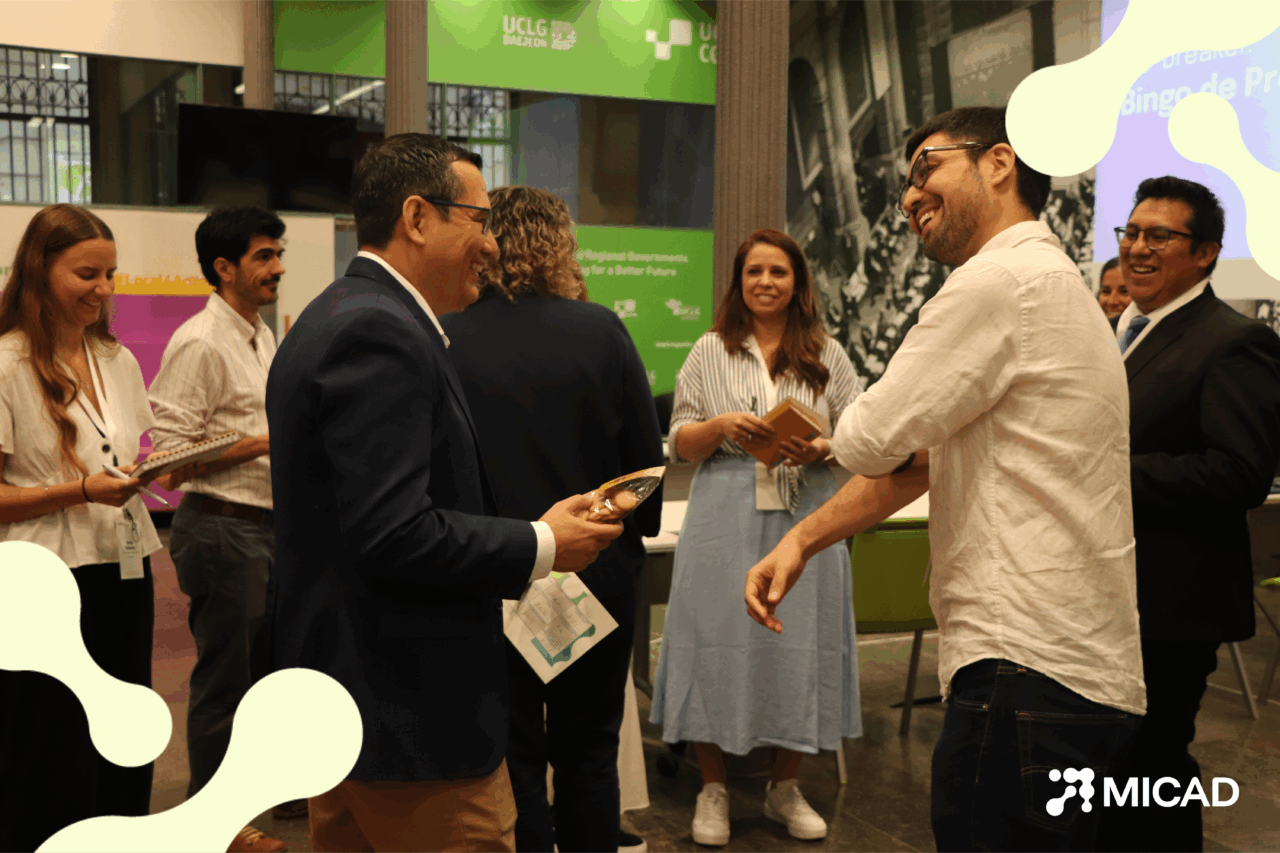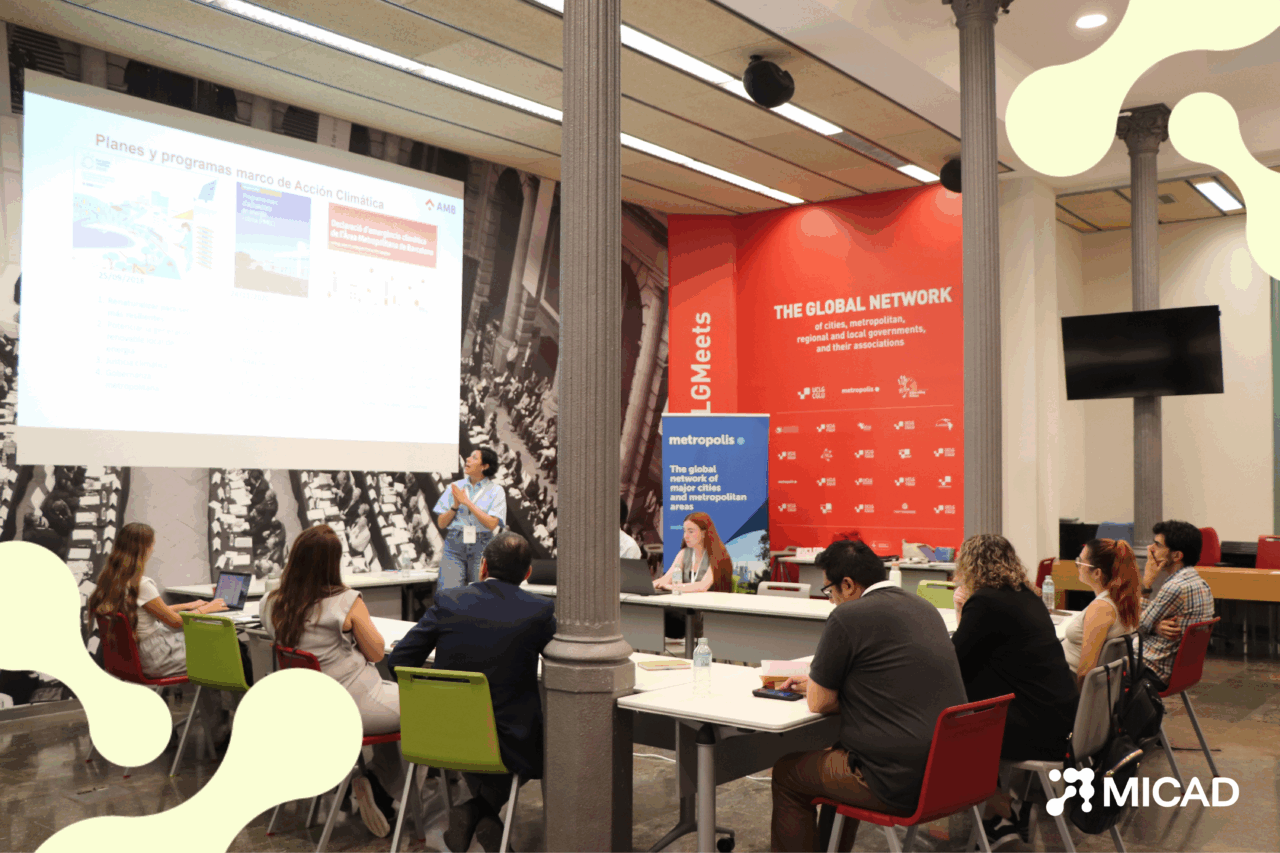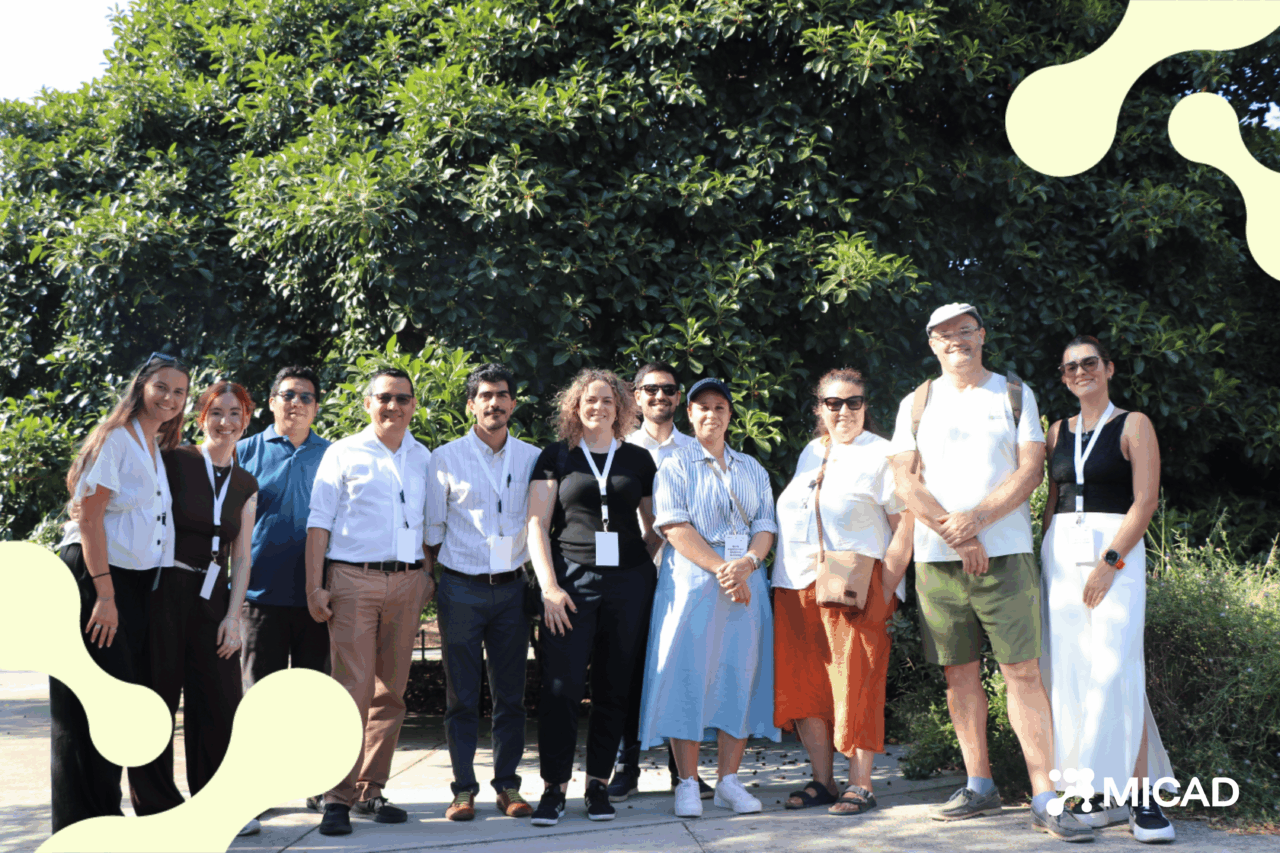The Future of Latin American Metropolises: inclusive, smart, and sustainable


On the 26 and 27th of June 2025, the MICAD project hosted the in-person session of the Solutions Lab “The Future of Latin American Metropolises: inclusive, smart, and sustainable” in Barcelona. After three online exchanges, local government representatives from Medellín, La Paz, São Paulo, Buenos Aires, Guadalajara and San Salvador came together to reflect on their shared challenges and explore practical approaches to inclusive metropolitan governance for digital and climate transition in Latin American cities.
The first day was dedicated to exploring the digital transition, understood not only as the deployment of new technologies but as a strategic process to transform how cities function, deliver services, and engage citizens. Discussions emphasized that digital transition must be systemic and integrated, relying on advanced infrastructure, interoperable platforms, open data, and citizen participation tools. Key principles include data sovereignty and security, social inclusion, and innovative governance that promotes collaboration across sectors and levels of government. Participants shared practical pathways forward: adopting clear step-by-step roadmaps, using living labs to experiment, and prioritizing human capacity building to ensure that digitalization benefits everyone. A recurring theme was the need to translate strategies into practical, territory-based solutions, supported by adequate financing and multisectoral cooperation. In addition, participants took part in technical visits, including the AMB Informació Center—a reference for data-driven mobility management and inclusive digital tools—and the Montjuïc Botanical Park, where metropolitan initiatives for climate transition were showcased.

The second day focused on climate transition, building on insights from previous online sessions. Participants emphasized that by 2050, cities are expected to be more sustainable, inclusive, and resilient, integrating nature, sustainable mobility, and active participation from governments, communities, and businesses. Discussions highlighted the need for holistic climate management, combining multiple actors and strategies to ensure long-term commitment. Key principles included cross-sector collaboration, transparency, social inclusion, and the definition of clear, measurable objectives linking long-term ambitions to immediate actions. Advancing climate transition relies on pillars such as access to clean water, effective waste management through the 3Rs (reduce, reuse, recycle), resource-efficient green construction, and sustainable agriculture that preserves biodiversity and reduces carbon emissions. Participants also explored innovative solutions, including modular solar systems for water purification, transforming marine plastics into reusable materials, rooftop urban gardens, agrovoltaic technologies, circular economy strategies, and inclusive communication programs to maximize social and environmental impact.
This Solutions Lab underlined the great variety of initiatives and strategies developed in Latin America to integrate digital and climate transitions in metropolitan areas’ planning. The discussions also showed that while solutions exist, they require collaboration across levels of government, active community engagement, and the capacity to think and act at the metropolitan scale.
